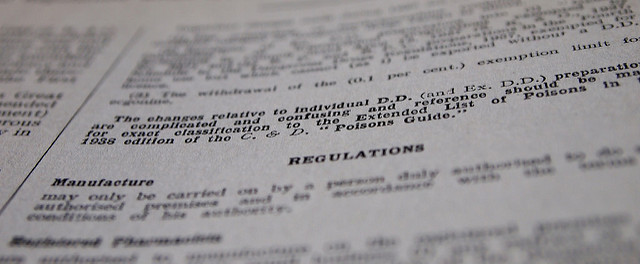
Recently announced regulations designed to stop American companies from inverting will backfire, House Ways and Means Chairman Kevin Brady (R-Texas) predicted today at an event sponsored by Bloomberg Government.
As reported by Politico Pro Tax, Chairman Brady fears that new debt equity regulations will fail to address America’s underlying competitiveness problem and will also have the unintended consequence of reduced investment in U.S. businesses. As Chairman Brady explains:
“Part of that was a Band-Aid that doesn’t get to the root cause. Secondly, I think in their haste to build a wall to keep companies from leaving the U.S. they may well have built a wall to keep investment from coming back to the United States.”
Although Treasury regulations were unveiled to prevent U.S. businesses inverting, the debt equity regulations under section 385 of the tax code are far broader and will restrict or complicate a broad range of transactions for businesses. In short, the regulation grants the Obama administration the authority to unilaterally characterize debt as equity for federal tax purposes.
Under the tax code, debt financing is taxed at the business level, while equity is taxed twice – at the business level and then at the shareholder level. This means that equity is subject to far higher levels of taxation, which has the effect of encouraging business to take on more debt than they otherwise would.
Implementing such a broadly encompassing regulation will block or complicate the ability of American businesses to utilize common international management practices. In today’s global economy capital is mobile and investors can just as easily invest in businesses based in other developed countries like Canada, the United Kingdom, or Ireland.
American businesses are already disadvantaged compared to businesses operating overseas and this new regulation will undoubtedly make things worse.
The U.S. corporate tax rate sits at a combined state and federal average of 39.1 percent, far above the average rate in the developed world, which is just 25 percent. In addition, the U.S. is just one of six countries in the Organisation for Economic Co-operation and Development with a worldwide system of taxation.
While other countries have pro-actively reduced their rate and updated their systems to compete in the global economy, the U.S. tax system has remained almost unchanged since the Tax Reform Act of 1986 — three decades ago. This competitiveness problem is driving businesses to shift their headquarters overseas through an inversion and or making U.S. businesses a target for foreign acquisition.
Rather than crushing new regulations, the Obama Administration should focus on working with Congress to reduce business taxes and update the outdated worldwide system. Instead, the proposed debt equity regulations will increases tax complexity and speed up the exodus of American businesses.

